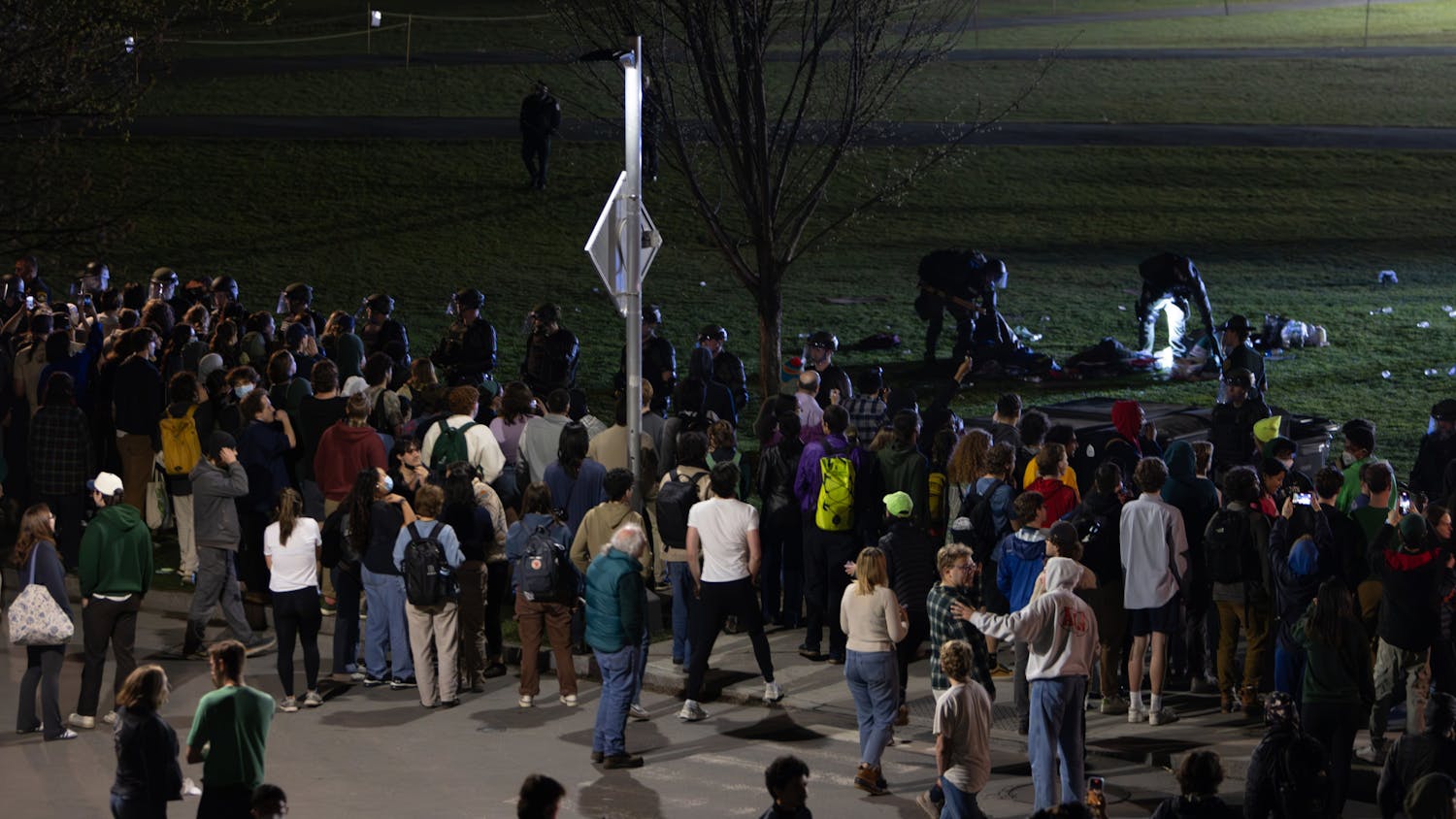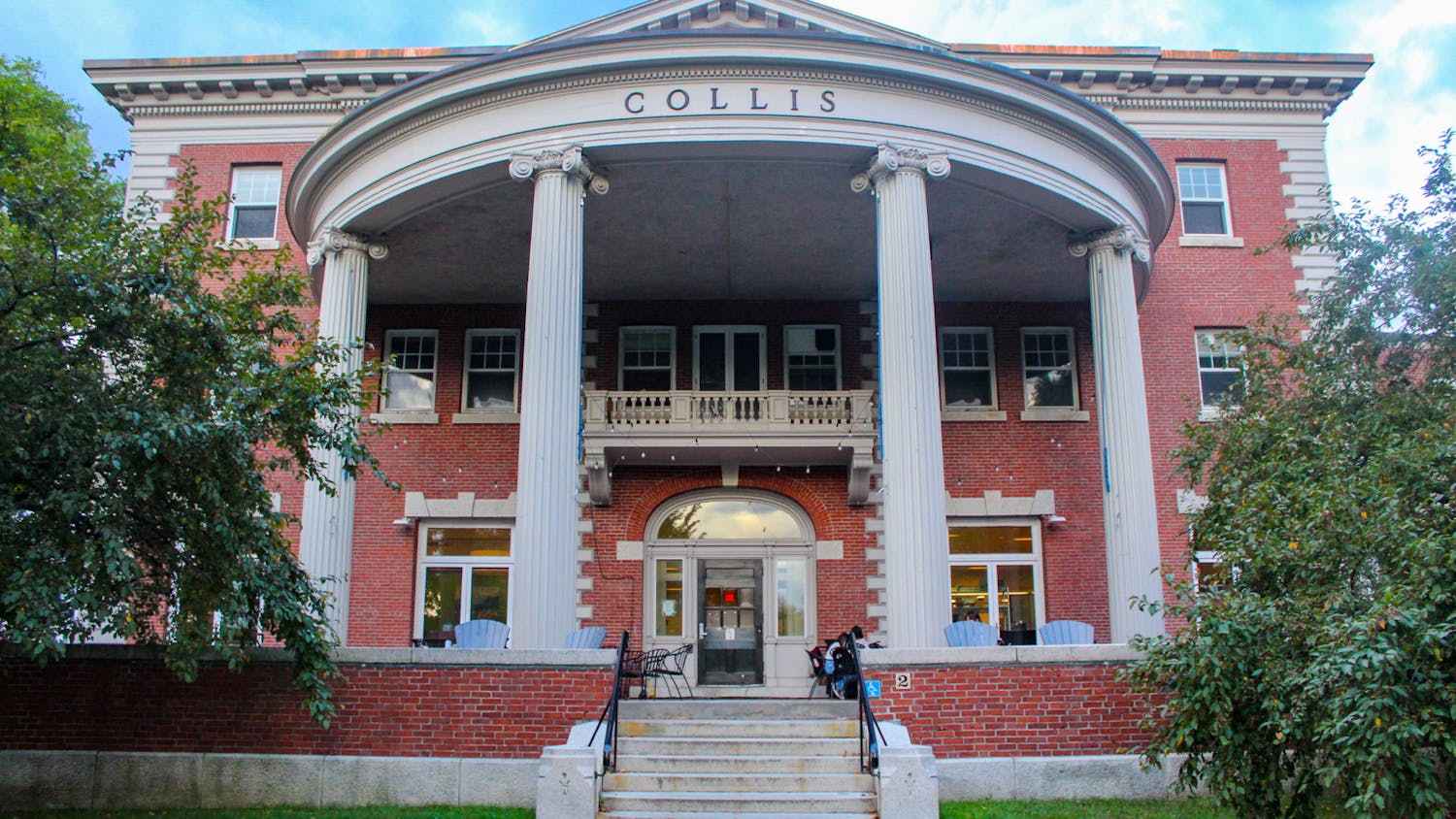This past Sunday marked the beginning of Asian American and Pacific Island Heritage month, an annual celebration of the pan-Asian community that continues through all of May. This year’s theme at Dartmouth is “Loving #MyAsianAmericanStory,” a hashtag that was originally started by an Asian American high school student.
Kevin Bui ’17, a member of the APAHM student organizing committee, said that this theme was chosen to convey the idea of self-love. He added that this hashtag — which has trended nationally — helps fold Dartmouth’s APAHM into part of a larger conversation. Not only does this year mark the first time that APAHM is organized around a theme, but it is also the first time that APAHM was planned by a central committee.
Assistant dean and advisor to pan-Asian students Shiella Cervantes said that the central planning committee helps focus APAHM from a pan-Asian perspective instead of from the viewpoints of specific ethnic groups.
T. “Camille” Wang ’17, also a member of the APAHM planning committee, said the College’s participation in APAHM consequently allows the student body to be part of this national conversation.
“APAHM will allow students to learn about different perspectives and people’s experiences and recognizing that there’s a wide range of diversity within the pan-Asian community,” Wang said.
Bui added that he hopes the whole campus can share in this celebration together, and that it is possible for pan-Asian students and non-pan-Asian students to see the programming from different angles. While some events focus on individual story sharing among Asian American students, several events intended for everyone, he said.
Wang said that it is much easier for pan-Asian students to identify with the issues and challenges brought up through much of the programming. Nonetheless, she said many elements, like self-identity and self-love, are relevant to all.
“As an institution, as college students, we’re expected to lead the way in terms of being open-minded and celebrating diversity,” Wang said.
Cervantes and Bui commented on the unique nature of the College’s APAHM compared to other schools due to the College’s spring term extending into June.
“We can have a whole month to dedicate to highlighting the Asian and Asian American experience,” Cervantes said. “APAHM is meant to be not only reflect the experiences of people who identity as Asian or Asian American, but anybody within the pan-Asian community.”
She added that APAHM celebrates the identities of a wide array of people, including East Asians, South Asians, Southeast Asians, Pacific Islanders, international students, multi-racial students and adoptees. Cervantes said that organizers also wanted to create space for the international community — a part of the student body that plays a role within the pan-Asian community but sometimes goes unrecognized.
“The goals for the entire Dartmouth community are just raising awareness and getting people to celebrate and explore the culture and history of people who are alongside them every single day,” said Renata Baptista, programming coordinator for community and leadership development. “Something like APAHM is transformational for all of those groups in different ways.”
To Cervantes, APAHM celebrates personal identity while educating people who are interested in learning more about other perspectives. The programming ties into OPAL’s mission of valuing differences and creating a “socially just world,” she said.
Baptista said that APAHM provided an interesting leadership experience for the student planning committee, who had to think about how to represent an identity and an experience in a single month of programming. The student planning committee started meeting last term.
“Part of it is the balancing act of what’s possible, what’s feasible for our campus, what’s feasible for our budget, and also what’s going to excite people,” Baptista added.
Bui said that student planners reached out to several speakers and looked at the combination of availability, pricing and who the committee thought would bring most to the programming.
“We wanted to make sure everything was tailored toward our theme,” he said.
Baptista said that the planning committee was also very intentional about the planning of the closing gala, which is meant to be a culminating celebration of APAHM.
APAHM at the College is not institutionalized like it is at many other schools, Bui said, so the organizers have to “jump through hoops to get funding,” as the celebration is not part of the institution’s calendar.
Cervantes said that this year’s budget for APAHM is higher than last year’s budget. Funding sources include the Special Programs and Events Committee, academic departments and the president’s and provost’s offices.
On Sunday, APAHM launched its kickoff event inside the Center for Gender and Student Engagement office.
While the planning community had envisioned an event that would be larger in scale, the kickoff “was pretty good all around,” Wang said. Raaz’s performance was the highlight of the kickoff, she said.
Cervantes said attendees had strong energy at the kickoff and the CGSE office was completely filled up.
“I think the goal was just to celebrate and kickoff the month in a joyful and celebratory way,” Baptista said.
APAHM began in 1977, when the House of Representatives introduced a bill to proclaim the first 10 days of May as Asian-Pacific Heritage week. May was specifically chosen as it commemorates the immigration of the first Japanese people to the United States. The month also marks the anniversary of the completion of the transcontinental railroad, the majority of which was built by Chinese immigrants. In 1990, President George H.W. Bush signed a bill passed by Congress to extend the celebration from a week to a month.
Sonia is a junior from Ottawa, Canada. (That is the mysterious Canadian capital that no one seems to ever have heard of.) She is a double major in Economics and Government, with a minor in French. She decided to join The D’s news team in her freshman fall because of her love of writing, talking to people, getting the most up-to-date news on campus, and having a large community of fellow students to share these interests with.




